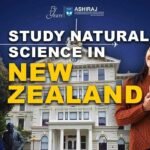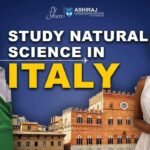
Natural Science in Australia
Australia boasts a rich tapestry of natural wonders, making it a captivating canvas for the exploration of Natural Science. From the iconic landscapes of the Outback to the vibrant coral reefs of the Great Barrier Reef, the continent is a living laboratory for scientists studying diverse ecosystems. Natural Science in Australia encompasses a wide spectrum of disciplines, including ecology, geology, and marine biology, each contributing to our understanding of the continent’s unique biodiversity. Researchers and enthusiasts alike are drawn to Australia’s distinctive flora and fauna, from the elusive marsupials to ancient plant species, providing ample opportunities for scientific inquiry.
In the vast expanse of the Australian wilderness, Natural Science plays a crucial role in unraveling the mysteries of evolution, climate patterns, and geological formations. The continent’s ecosystems are intricate and delicately balanced, prompting scientists to delve into the intricate web of interconnections that sustain life. Natural Science in Australia is not merely an academic pursuit but a hands-on exploration of the diverse and often enigmatic natural phenomena that define the continent. The research conducted within this vast and varied landscape contributes not only to the global scientific community but also to the conservation and preservation efforts necessary for Australia’s unique ecosystems.
Why to Study Natural Science in Australia?
Australia stands as an unparalleled classroom for those eager to delve into the realms of Natural Science. Here’s why studying Natural Science in Australia is an enriching experience:
- Biodiversity Extravaganza: Australia is a biodiversity hotspot, hosting a myriad of unique and endemic species. From the iconic kangaroos to the elusive platypus, the continent offers an extraordinary living laboratory for studying diverse ecosystems.
- Living Laboratories: The continent’s diverse landscapes, including the Outback, rainforests, and coastal regions, serve as living laboratories. Students get hands-on experience studying varied environments, contributing to a holistic understanding of ecological systems.
- Great Barrier Reef Wonder: Australia is home to the world’s largest coral reef system, the Great Barrier Reef. Studying marine biology here provides unparalleled opportunities to explore and understand the complex dynamics of this extraordinary ecosystem.
- Cutting-Edge Research Facilities: Australian universities are equipped with state-of-the-art research facilities. Students have access to cutting-edge technology and resources, fostering a dynamic learning environment.
- Global Conservation Impact: As a hotbed of unique biodiversity facing conservation challenges, studying Natural Science in Australia allows students to contribute to global conservation efforts. The knowledge gained becomes a tool for preserving the planet’s natural heritage.
In conclusion, choosing Australia for Natural Science studies offers an immersive and transformative educational experience. The continent’s diverse ecosystems, cutting-edge facilities, and global conservation impact make it an ideal destination for those passionate about unraveling the secrets of the natural world.
Top Universities to Study Natural Science in Australia
University | QS World University Ranking 2023 | Type of University | Average Annual Fees (AUD) | Programs Offered |
Australian National University | 27 | Public Research University | $30,000 – $45,000 | Natural Science, Environmental Science, Ecology |
University of Melbourne | 41 | Public Research University | $35,000 – $50,000 | Biology, Geology, Climate Science, Marine Biology |
University of Queensland | 47 | Public Research University | $32,000 – $47,000 | Environmental Management, Earth Sciences, Wildlife Biology |
University of Sydney | 50 | Public Research University | $35,000 – $52,000 | Environmental Science, Physics, Chemistry |
Monash University | 55 | Public Research University | $32,000 – $48,000 | Earth Atmosphere and Environment, Biotechnology |
Australia stands at the forefront of Natural Science education, with its universities consistently ranking high globally. Here is a curated list of the top five universities in Australia for Natural Science based on the QS World University Rankings 2023:
- Australian National University (ANU): Ranked 27th globally, ANU is a leading public research university offering programs in Natural Science, Environmental Science, and Ecology. The average annual fees range from $30,000 to $45,000.
- University of Melbourne: With a global ranking of 41, the University of Melbourne is renowned for its research in Biology, Geology, Climate Science, and Marine Biology. The average annual fees for Natural Science programs range from $35,000 to $50,000.
- University of Queensland: Ranked 47th globally, UQ excels in Environmental Management, Earth Sciences, and Wildlife Biology. The average annual fees for Natural Science programs at UQ range from $32,000 to $47,000.
- University of Sydney: Holding the 50th position globally, the University of Sydney offers programs in Environmental Science, Physics, and Chemistry, with average annual fees ranging from $35,000 to $52,000.
- Monash University: Ranked 55th globally, Monash University provides programs in Earth Atmosphere and Environment, as well as Biotechnology, with average annual fees ranging from $32,000 to $48,000. These universities not only provide world-class education but also contribute significantly to the advancement of Natural Science in Australia.
Course Curriculum for Natural Science in Australia
- Foundational Sciences: Natural Science programs in Australia typically start with foundational courses covering biology, chemistry, and physics. These courses establish a strong base for understanding the principles that underpin the natural world.
- Specialization Tracks: Students have the flexibility to choose specialization tracks based on their interests. These may include ecology, environmental science, geology, marine biology, and more. Specialized courses delve deeper into specific areas of Natural Science.
- Fieldwork and Practical Experience: Australian universities emphasize hands-on learning. Natural Science programs often incorporate fieldwork, lab sessions, and practical experiences. This approach allows students to apply theoretical knowledge in real-world settings.
- Interdisciplinary Approach: The curriculum promotes an interdisciplinary approach, encouraging students to connect various scientific disciplines. This fosters a holistic understanding of ecosystems and natural processes.
- Research Opportunities: Many programs include research components, enabling students to engage in scientific inquiry. This may involve conducting experiments, field research, or contributing to ongoing research projects.
- Environmental Sustainability: Given Australia’s unique biodiversity and environmental challenges, Natural Science courses often integrate modules on environmental sustainability. This ensures students are well-equipped to address current and future ecological concerns.
- Cutting-Edge Technology: The curriculum incorporates the use of cutting-edge technology and scientific tools. Students gain proficiency in data analysis, GIS (Geographic Information System), and other relevant technologies.
Studying Natural Science in Australia offers a comprehensive and dynamic curriculum that combines theoretical knowledge with practical skills. The diverse range of courses and the emphasis on real-world applications make it an enriching experience for students aspiring to unravel the mysteries of the natural world. Whether in the classroom, laboratory, or the vast Australian wilderness, the curriculum prepares students for impactful contributions to the field of Natural Science in Australia and beyond.
Eligibility Criteria & Admission Requirements for Natural Science in Australia
- Language Proficiency:
IELTS: A minimum overall score of 6.5 with no band less than 6.0.
TOEFL: A minimum score of 79 with a minimum of 21 in each section.
- Standardized Tests:
GRE (Graduate Record Examination) or GMAT (Graduate Management Admission Test) scores are often required. The specific score requirements may vary by university but typically range from 310 to 320 for GRE and 600 to 650 for GMAT.
- Academic Certificates:
A bachelor’s degree in a relevant field of study, such as biology, chemistry, environmental science, or a related discipline, is generally required. The minimum GPA requirement may vary by institution but is typically around 3.0 on a 4.0 scale.
- Work Experience:
While work experience is not always mandatory, some programs may prefer or require relevant professional experience, especially for postgraduate studies.
- Passport & Student Visa:
A valid passport is essential for international students. Additionally, obtaining a student visa is a crucial step. Students must meet the visa requirements set by the Australian government, including proof of enrollment and financial capacity.
- Application Documents:
Submission of academic transcripts, letters of recommendation, a statement of purpose, and a resume or curriculum vitae.
- Interviews:
Some universities may require an interview as part of the application process. This is an opportunity to discuss academic and professional experiences, as well as the motivation for pursuing Natural Science studies.
Meeting these eligibility criteria ensures that students are well-prepared for the academic rigor of Natural Science programs in Australia. The holistic approach to admission considers not only academic achievements but also language proficiency, standardized test scores, and other aspects that contribute to a diverse and vibrant academic community.
Documents Required for Studying Natural Science in Australia
- Passport:
A valid passport is a fundamental requirement for international students applying for Natural Science programs in Australia.
- Letters of Recommendation (LOR):
Typically, two LORs are needed. These letters should come from professors, employers, or professionals who can attest to the applicant’s academic or work-related capabilities.
- Statement of Purpose (SOP):
The SOP outlines the applicant’s academic and professional goals, explaining why they are pursuing Natural Science studies in Australia. It offers insights into the applicant’s motivations and aspirations.
- Curriculum Vitae (CV):
A comprehensive CV details the applicant’s educational background, work experience, achievements, and any relevant skills. It provides a snapshot of the applicant’s qualifications and experiences.
- Official High School Transcripts and Educational Certificates:
Transcripts from high school and any post-secondary education institutions are required. These documents should be official and showcase the applicant’s academic achievements.
- Work Experience Certificate:
If applicable, a certificate validating work experience in a relevant field strengthens the application. It provides insight into the applicant’s practical knowledge and industry exposure.
- Proof of Financial Resources:
Demonstrating the ability to cover tuition fees and living expenses is crucial. This can be through bank statements, scholarship awards, or financial guarantees.
Ensuring all required documents are prepared and submitted accurately is essential for a successful application to Natural Science programs in Australia. These documents collectively present a comprehensive picture of the applicant’s academic background, professional experiences, and readiness for advanced studies in the field of Natural Science in Australia.
Admission Process for Natural Science in Australia
- Research and Choose Programs:
Begin by researching Natural Science programs in Australia. Consider factors like curriculum, faculty, and research opportunities. Choose programs aligned with your academic and career goals.
- Check Eligibility Criteria:
Review the specific eligibility criteria for each chosen program. This includes academic requirements, language proficiency (IELTS or TOEFL scores), and standardized tests (GRE or GMAT).
- Prepare Required Documents:
Gather essential documents such as a valid passport, letters of recommendation (LOR), statement of purpose (SOP), curriculum vitae (CV), official transcripts, educational certificates, work experience certificates, and proof of financial resources.
- Submit Online Application:
Most universities have online application portals. Complete and submit the application form, ensuring all required information and documents are attached.
- Pay Application Fees:
Pay the application fees as per the university’s guidelines. Some universities may offer fee waivers or scholarships based on merit or financial need.
- Wait for Admission Decision:
Once the application is submitted, patiently await the admission decision. This period may vary, and some universities may conduct interviews as part of the evaluation process.
- Acceptance and Visa Application:
Upon receiving an offer of admission, accept the offer and proceed to apply for a student visa. Ensure all visa requirements, including health insurance and financial capacity, are met.
- Arrival and Orientation:
Plan your arrival in Australia, attend orientation programs provided by the university, and familiarize yourself with campus facilities and resources.
- Commence Studies:
With all formalities completed, start your Natural Science studies in Australia. Engage with professors, fellow students, and take advantage of the diverse academic and research opportunities.
Embarking on the admission process for Natural Science in Australia requires careful planning and attention to detail. By following these steps, prospective students can navigate the application process seamlessly, setting the stage for a fulfilling academic journey in the field of Natural Science in Australia.
“Education is the most powerful weapon which you can use to change the world.”
Nelson Mandela
Cost of Natural Science Course in Australia
- Tuition Fees:
Tuition fees for Natural Science programs in Australia vary by university and level of study. On average, undergraduate programs can range from $25,000 to $40,000 AUD per year, while postgraduate programs may be slightly higher.
- Living Expenses:
Consider the cost of living, including accommodation, food, transportation, and other daily expenses. On average, students may need around $20,000 to $25,000 AUD per year for living expenses.
- Health Insurance:
Overseas students are required to have health insurance in Australia. The cost varies but is approximately $500 to $700 AUD per year. It’s a crucial aspect of your financial planning.
- Books and Supplies:
Budget for textbooks, materials, and other supplies required for your Natural Science studies. This can range from $500 to $1,000 AUD per year, depending on your program.
- Travel and Leisure:
Allocate funds for occasional travel and leisure activities. This can vary based on personal preferences but is typically around $2,000 to $3,000 AUD per year.
- Miscellaneous Costs:
Be prepared for unforeseen expenses, such as visa application fees, mobile phone plans, and other miscellaneous costs. This may add an additional $1,000 to $2,000 AUD to your budget.
Understanding the cost components is essential for effective financial planning when pursuing Natural Science studies in Australia. It’s advisable to explore scholarships, part-time work opportunities, and budgeting strategies to manage the overall cost of studying Natural Science in Australia efficiently.
Scholarships for Natural Science Courses in Australia
Scholarship Name | Eligibility Criteria | Amount (AUD) | Application Deadline |
Australia Awards | Open to international students pursuing postgraduate studies | Full tuition, stipend | Varies by program |
Endeavour Leadership Program | For high-performing students across various disciplines | $15,000 to $272,500 | April 30th annually |
University-specific Scholarships | Offered by individual universities for academic excellence | Varies by institution | Check university website |
Research Training Program (RTP) | Available for research-based postgraduate degrees | Full or partial tuition | Varies by university |
- Australia Awards:
Open to postgraduate students, the Australia Awards scholarship covers full tuition and provides a stipend. Application deadlines vary by program.
- Endeavour Leadership Program:
High-achieving students in various disciplines, including Natural Science, can apply. The scholarship ranges from $15,000 to $272,500, and the application deadline is annually on April 30th.
- University-specific Scholarships:
Many universities offer scholarships based on academic excellence. The amount varies by institution, and interested students should check the university’s website for specific details.
- Research Training Program (RTP):
Tailored for research-based postgraduate degrees, the RTP scholarship covers either full or partial tuition. Application deadlines vary by university.
These scholarships present valuable opportunities for students pursuing Natural Science in Australia to alleviate financial burdens and focus on their academic pursuits. Prospective applicants should carefully review eligibility criteria, amounts, and application deadlines to make informed decisions about their scholarship applications.
Career Opportunities After Natural Science in Australia
Job Profile | Description | Average Salary (AUD) |
Environmental Scientist | Conducts research and analysis to address environmental issues | $70,000 – $90,000 |
Ecologist | Studies ecosystems and conducts fieldwork for ecological conservation | $65,000 – $85,000 |
Research Scientist | Engages in scientific research, often contributing to advancements in the field | $80,000 – $110,000 |
Geospatial Analyst | Utilizes geographic information systems for mapping and data analysis | $75,000 – $95,000 |
Marine Biologist | Studies marine life, ecosystems, and researches marine conservation | $70,000 – $90,000 |
- Environmental Scientist:
Addressing environmental concerns, these professionals earn an average salary ranging from $70,000 to $90,000.
- Ecologist:
Engaged in ecological conservation, ecologists can earn an average salary between $65,000 and $85,000.
- Research Scientist:
Contributing to scientific advancements, research scientists earn an average salary ranging from $80,000 to $110,000.
- Geospatial Analyst:
Utilizing geographic information systems for mapping and analysis, geospatial analysts can earn an average salary between $75,000 and $95,000.
- Marine Biologist:
Studying marine life and ecosystems, marine biologists earn an average salary ranging from $70,000 to $90,000.
These career opportunities underscore the versatility and impact of pursuing Natural Science in Australia. Graduates can contribute to environmental sustainability, scientific research, and conservation efforts while enjoying competitive salaries in their respective fields.
Frequently Asked Questions About Natural Science in Australia
Australia offers a range of programs, including Environmental Science, Biology, Geology, and Marine Biology.
Tuition fees vary, with undergraduate programs averaging $25,000 to AUD 40,000 per year. Living expenses add $20,000 to AUD 25,000 annually.
Yes, various scholarships, such as Australia Awards and university-specific scholarships, support Natural Science students financially.
Eligibility typically includes academic qualifications, language proficiency (IELTS or TOEFL), standardized test scores (GRE or GMAT), and relevant documents.
Yes, graduates can pursue careers as Environmental Scientists, Ecologists, Research Scientists, Geospatial Analysts, and Marine Biologists, with competitive salaries.
Duration varies; undergraduate programs typically take 3 to 4 years, while postgraduate programs range from 1 to 2 years.
Yes, international students can work part-time, up to 20 hours per week, during their studies.
The process involves choosing programs, checking eligibility, preparing documents, submitting online applications, and waiting for admission decisions.
Australia’s diverse ecosystems provide ample research opportunities, from studying the Great Barrier Reef to exploring unique flora and fauna.
Yes, universities in Australia provide support services, including accommodation assistance and orientation programs to help international students settle into their academic journey.




